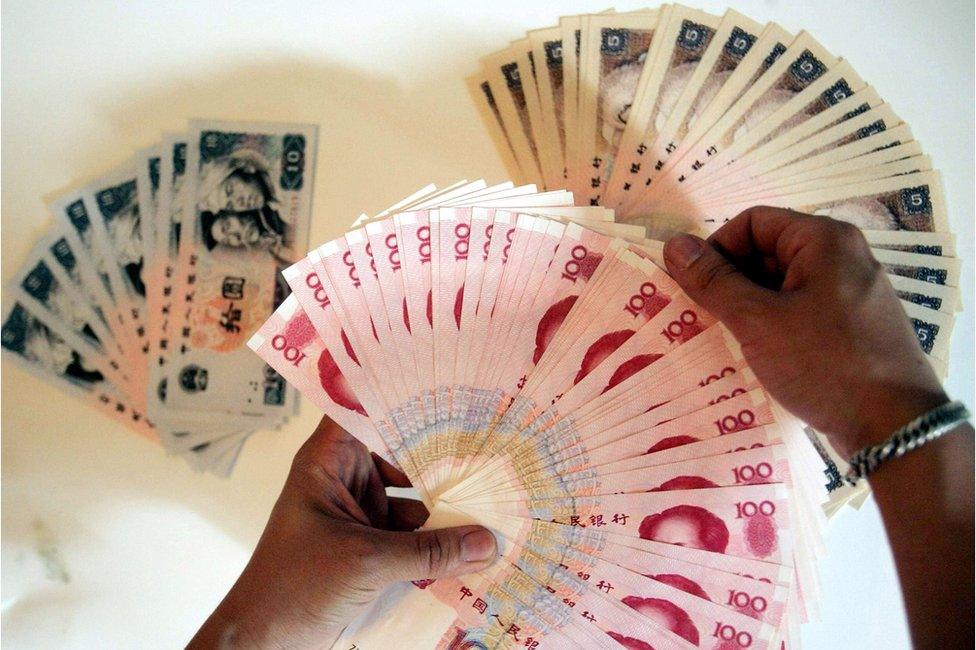Beijing offers hefty cash reward for spy tip-offs
- Published

The cash rewards range from 10,000 to 500,000 yuan
The Beijing government is offering hefty cash rewards for information on foreign spies, state media report.
Residents of the Chinese capital can earn up to 500,000 yuan (£58,000; $72,000) by submitting tip-offs.
City officials said the public should help "to slowly construct an iron Great Wall in combating evil and guarding against spies".
Authorities launched an awareness campaign last year, including warnings against being seduced by foreign spies.
The new regulation was announced by the security branch of the Beijing municipal government. It said that residents could file tip-offs through the hotline launched last year in person or by post.
The cash rewards range from 10,000 to 500,000 yuan, depending on how useful the tip-offs are in "preventing or stopping espionage behaviour, or cracking espionage cases", according to several state media outlets including Beijing Daily.
Watch: China warns of "dangerous love" with spies
Authorities said that as the heart of Chinese governance and innovation, Beijing "is the first choice among foreign spy agencies and others who are fiercely carrying out infiltration, subversion, division, destruction and theft".
Authorities said that in January, a group of fishermen in Jiangsu province found an "unidentifiable object inscribed with foreign words" while trawling for fish, and handed it in to authorities.
The object was later found to be "a spying device that was collecting data on China".

'A useful tool' - By John Sudworth, BBC News, Beijing
It's too early to say whether the new reward scheme will see crowds of would-be spy-busters prowling Beijing and stopping foreigners to make sure their bow ties aren't hiding cameras.
What it will do, though, is keep the sense of threat high in people's minds.
Under President Xi Jinping, China has grown increasingly suspicious of foreign influence and ideas. Foreign organisations, foreign academics and foreign companies are facing greater scrutiny and surveillance.
National security laws have also been beefed up, ostensibly to counter the actions of other governments but also, critics argue, in ways that allow the authorities to crack down further on dissent at home.
No-one doubts that China, like all major world powers, is a target for espionage. But however real that threat, raising the spectre of hostile foreign forces to rally domestic support can be a useful tool and it wouldn't be the first time that the Chinese authorities have reached for it.

- Published20 April 2016
